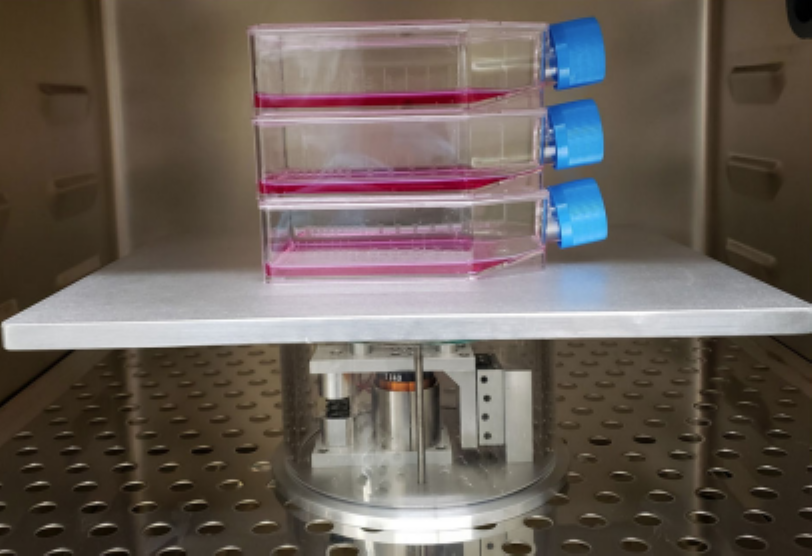
Background
The CAR T cell therapy process, from patient apheresis to manufacturing facility and back to the treatment center, currently takes anywhere between 2-4 weeks and necessitates a complex network of transportation, scheduling and skilled labor to be successfully executed. This cascade of events is highly subject to delays which can negatively impact patient outcomes. A substantial fraction is spent on the ex vivo cell expansion phase alone, using IL-2, a T cell growth factor and antigen cell present mimicking agents. To meet the time-sensitive demands of cancer treatment with a non-chemical approach, Dr. Rubin and Dr. Chan’s team propose to expedite the expansion phase for high-throughput CAR T cell manufacturing using mechanical stimulations.
Technology
Dr. Rubin and Dr. Chan’s team have demonstrated that mechanical signals delivered via low intensity vibration (LIV) have a proliferative effect on human Pan T cell cells. LIV can be delivered in sterile cell culture conditions through vertical oscillation of a custom feedback-controlled device. Optimization parameters include the amplitude, frequency, duration and refractory period of the sinusoidal LIV signals. Promoting proliferation of the T cells shortens the cell expansion phase of the biomanufacturing process and will shorten waiting (vein-to-vein) time in CAR T cell therapy.
Advantages
Novel system with optimized parameters - Promotes proliferation of T cells - Shortens cell expansion phase - Patient-Centered - Widely applicable
Application
Autologous cell therapy - Hematology products - CAR-T Cell Therapy
Inventors
Mei Lin (Ete) Chan, Research Assistant Professor, Biomedical Engineering
Clinton Rubin, Distinguished Professor, Biomedical Engineering
Licensing Potential
Development partner - Commercial partner - Licensing
Licensing Status
Available
Licensing Contact
Valery Matthys, Licensing Associate, Intellectual Property Partners, valery.matthys@stonybrook.edu,
Patent Status
Patent Application Published: PCT/US2021/034742
Tech Id
050-9168
